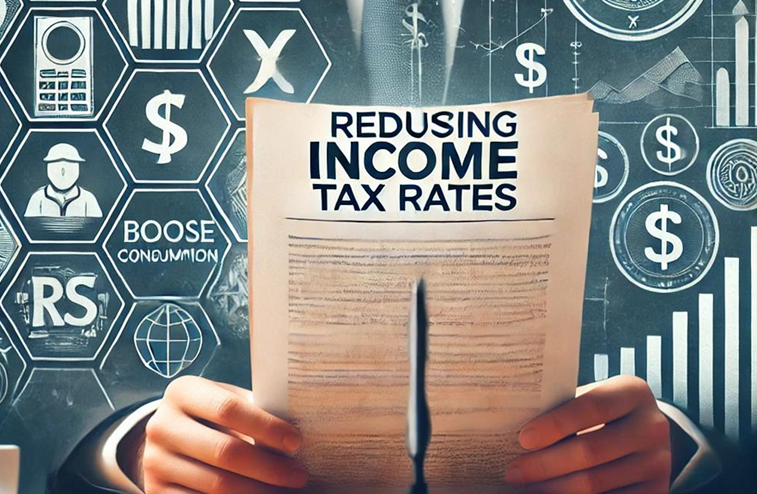
In an effort to stimulate economic growth and increase consumer spending, the Indian government is reportedly considering a reduction in income tax rates as part of the upcoming Budget 2025. This potential policy shift aims to provide financial relief to taxpayers, thereby encouraging higher consumption and injecting vitality into the economy.
The Current Economic Landscape
India’s economy has shown resilience despite global challenges, but domestic consumption remains a critical driver for sustained growth. The COVID-19 pandemic and subsequent global economic disturbances have led to cautious spending habits among consumers. To counteract this trend, the government is exploring various measures to enhance disposable income and boost spending.
Potential Tax Rate Reductions
According to sources cited by Business Standard, the government is evaluating a proposal to lower income tax rates across various slabs. This move is expected to directly benefit middle and lower-income groups, who are more likely to increase their spending with additional disposable income. While the exact details of the proposed tax cuts are yet to be finalized, the anticipation of such a policy has already generated positive sentiment among financial analysts and the general public.
Expected Impact on Consumption
Reducing income tax rates could have several beneficial outcomes:
1. **Increased Disposable Income**: Lower tax rates mean more money in the hands of consumers, which can lead to higher spending on goods and services.
2. **Boost to Retail and Service Sectors**: With more disposable income, consumers are likely to increase their spending on retail products and services, driving growth in these sectors.
3. **Enhanced Savings and Investments**: Apart from consumption, taxpayers may also channel their additional income into savings and investments, contributing to financial markets and overall economic stability.
Government’s Fiscal Strategy
While the proposed tax cuts aim to boost consumption, the government must balance this with fiscal responsibility. The reduction in income tax rates could lead to a short-term decline in tax revenues. However, the government is likely betting on increased economic activity and consumption to eventually offset this loss through higher indirect tax collections and overall economic growth.
Reactions from Experts
Economists and financial experts have largely welcomed the proposal, highlighting its potential to rejuvenate the economy. They note that such measures are crucial for sustaining growth momentum, especially in a post-pandemic recovery phase. However, some caution that the government must ensure that these cuts do not lead to excessive fiscal deficits, which could undermine long-term economic stability.
Conclusion
The proposed reduction in income tax rates as part of Budget 2025 reflects the government’s proactive approach to fostering economic growth and enhancing consumer confidence. By putting more money into the hands of taxpayers, the government aims to stimulate consumption, which is a key driver of economic activity. As the details of the budget unfold, it will be crucial to assess the balance between immediate economic stimulation and long-term fiscal health.
Stay tuned for further updates and detailed analysis as the government finalizes its Budget 2025 proposals.
—
*This article is brought to you by Taxodi.com, your trusted source for the latest tax news and updates.*







